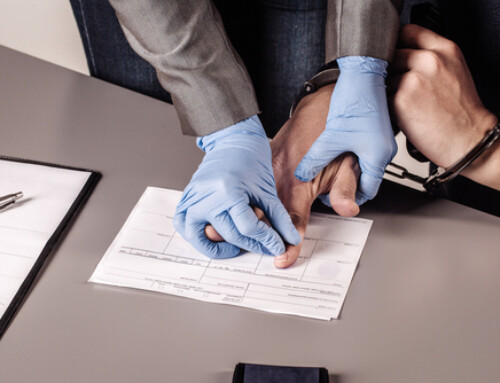As an experienced criminal lawyer in North Charleston, South Carolina clients ask me what to do if law enforcement visits their home asking to take a look inside without a warrant. Frequently, people in this situation allow the police in because they think they don’t have an option and they may find themselves arrested if the police find drugs or other illegal activities inside the home. Police can knock at your door and ask to speak with you for any reason or no reason at all. Keep reading to learn about the general exceptions to the requirement that police have a valid search warrant and what your rights are in South Carolina when police have a warrant to search your home.
When Can the Police in South Carolina Search My Home or Property Without a Warrant?
There are five instances where the police don’t need a search warrant to search your home or property in South Carolina: 1) consent; 2) hot pursuit; 3) plain view; 4) curtilage; and 5) garbage. We’ll explain these in more detail below.
Consent. The Fourth Amendment protects your home and its contents it from unreasonable searches and seizures. However, a simple “okay” can be enough to allow officers to search your home without a warrant. Evidence obtained by a consent search in North Charleston is generally deemed admissible. Consent can be given by anyone who is in charge of the area, like a roommate. The person giving consent can choose to limit the scope of the consent to search, but as a general rule, if North Charleston police come to your door and ask to search your home without a warrant, politely tell them no and immediately call an experienced criminal lawyer at Deaton Law Firm, because the police will likely be back.
Hot Pursuit. When the police on TV shows run through apartments and across back yards to chase down their suspect, they are doing so in hot pursuit. In South Carolina, hot pursuit allows law enforcement to enter your home without a warrant under two circumstances: (1) when the police are pursuing (chasing) a suspected felon onto private property or (2) when the lives of police officers or others are in danger.
Plain View. Police in South Carolina can enter your home without a warrant if they can see evidence of criminal activity in plain view from outside the home and they suspect you would destroy the evidence if the officer left to get a warrant. This occurs most frequently when law enforcement knocks on the door, the occupant of the home opens the door and the police see drugs on the living room table. The police can then enter the home to seize the drugs and search for other evidence of drugs to prevent the occupant from destroying the evidence even if the police don’t have a warrant.
Curtilage. Curtilage in South Carolina is the private property area around your home. For some homes, the curtilage is clearly defined by fences, shrubs or walls. Where it isn’t clearly defined, South Carolina considers curtilage the areas around the home where the homeowner has a reasonable expectation of privacy and intimate home activities take place. Police can’t search curtilage without a warrant any more than they can search your home. However, the plain view exception remains for evidence like marijuana plants.
Garbage. Police can search your garbage in South Carolina if it’s placed on your curb for pick up. Once trash is placed on the curb, it’s considered abandoned property and the police may seize it or search it for evidence of illegal activity.
About Search Warrants in South Carolina.
Search warrants in South Carolina are issued by a magistrate, municipal judge, or other judge. The warrant must identify the property and name or describe the person or place to be searched and must be executed within ten days of it being issued by the judge. Every warrant is kept for three years with its supporting affidavit and a form that says the exact date and time of issuance, the person who issued it, the reason for issuance, the materials sought in the search, the name of the person whose property is to be searched as well as the address of the property, and the date and time of the return from executing the search warrant. Contrary to common belief, a search warrant in South Carolina can be executed on a Sunday.
Call a lawyer. If police are at your door with a valid warrant to search your home, you must let them in. The law enforcement officers will give you a copy of the warrant the supporting affidavit. If the police are searching your home pursuant to a valid warrant or have recently searched your home, call Deaton Law Firm NOW for a free consultation.
Demand an inventory. If your property has been seized pursuant to a search warrant in North Charleston, South Carolina you can demand an inventory of the articles seized. Contact an experienced South Carolina criminal attorney at the Deaton Law Firm and we will assist you with this process.
Be Polite. Evidence may be seized pursuant to a search warrant, but arrests are not always made at that time. Law enforcement is usually required to knock on the door and announce their presence before entering your home to execute a search warrant. Be polite to the officers to avoid provoking an arrest and call our law firm immediately for advice about what to do if your house or property in North Charleston is searched by police.
Criminal Defense Attorney in North Charleston
If police in or near North Charleston, South Carolina has asked to search your home or property without a warrant or have searched your home or property pursuant to a warrant, you need sound advice fast. Contact an experienced criminal attorney in North Charleston, South Carolina immediately for a FREE consultation.






